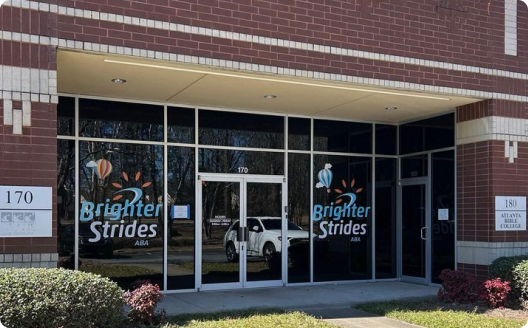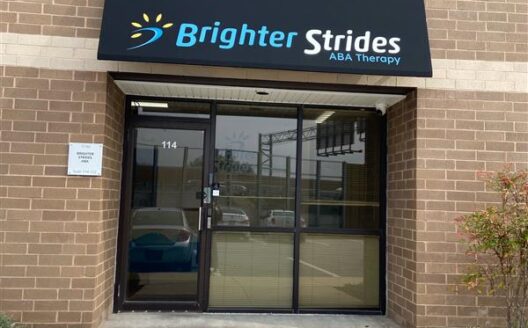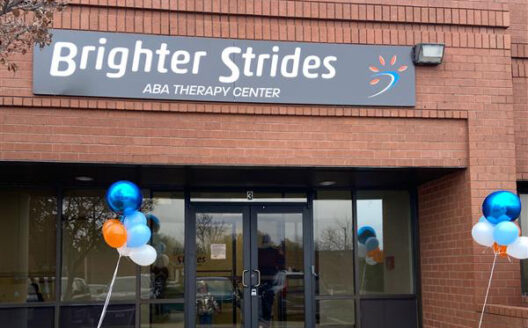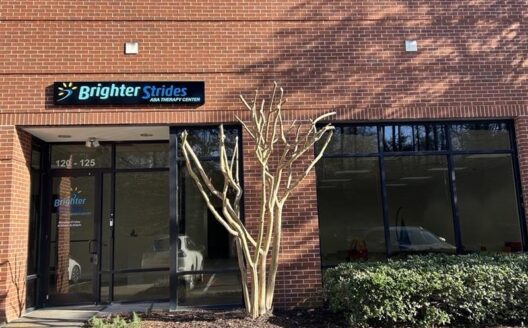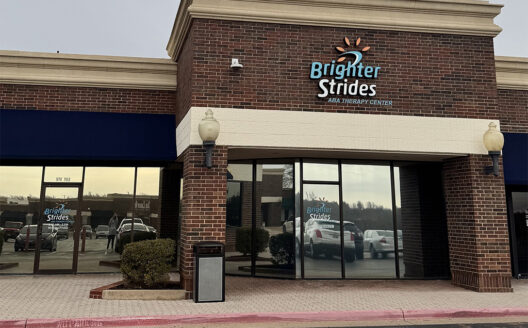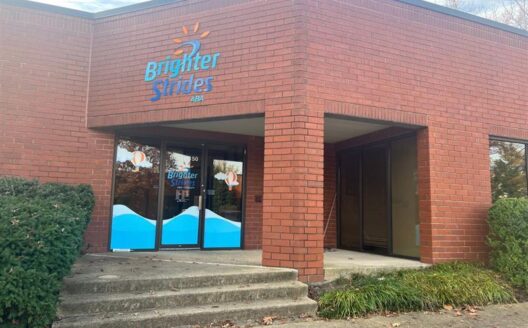Brighter Strides ABA
Center-Based ABA Therapy
Our state-of-the-art modern clinics are designed to support your child with the optimal conditions for learning.
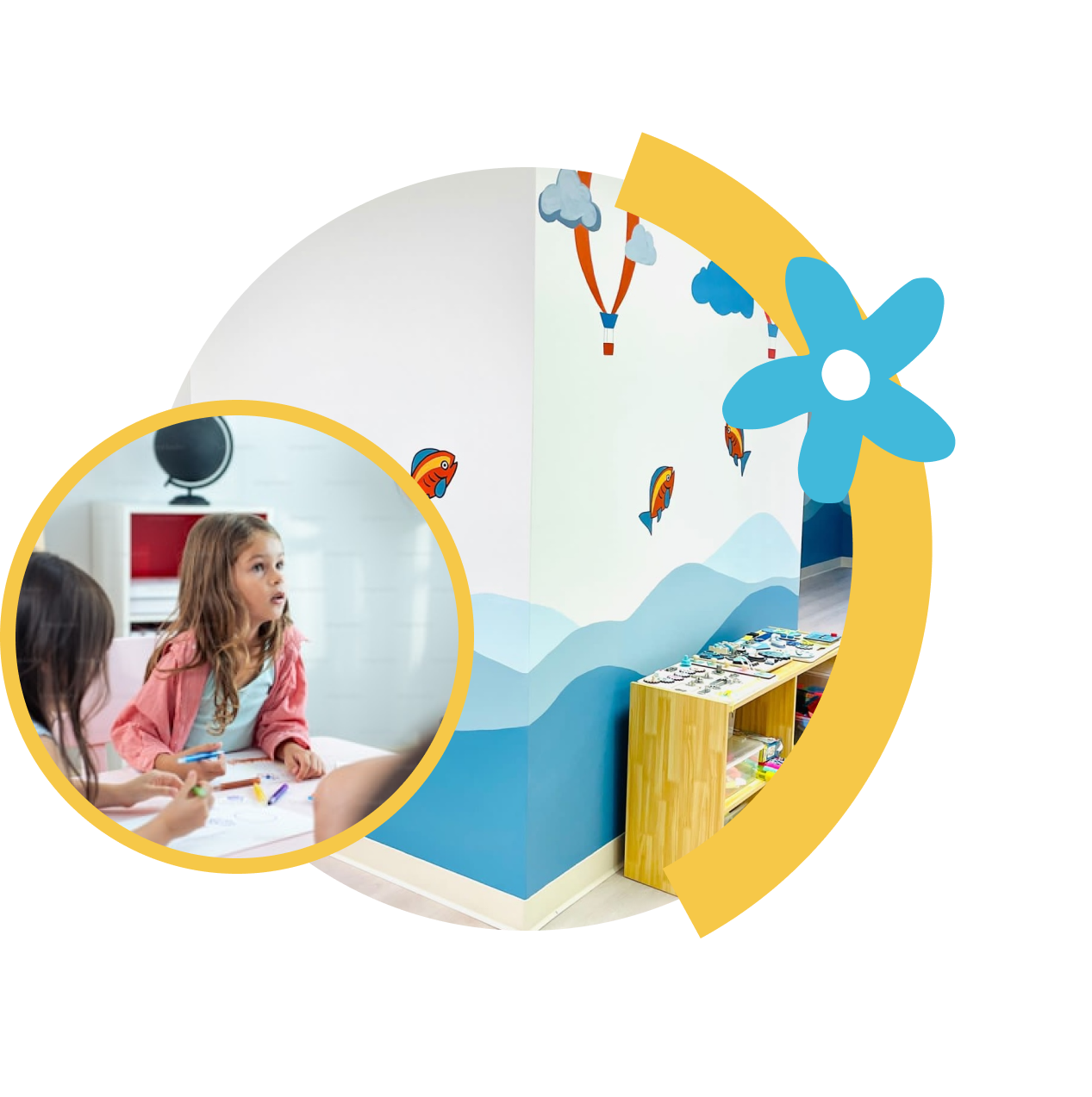
A Structured Learning Environment
The Benefits of Center-Based ABA Therapy
- Center-based ABA therapy is a great option for children who thrive in a predictable, structured environment.
- Without the distractions of TV, electronics, toys, and pets, children can focus more effectively.
- The center is expressly designed to facilitate our work, providing a controlled environment for focused learning and skill acquisition. Each of our thoughtfully developed clinics is equipped with special props, engaging activity zones, and developmental toys to support ABA strategies and techniques.
- Children have more opportunities to interact with peers and may have access to a larger ABA team during therapy sessions in the clinic.

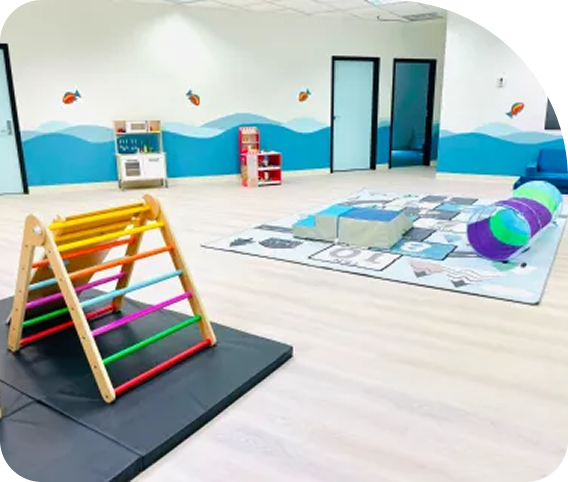
Maximizing Therapy Outcomes With Parental Involvement
How-To Support Your Child's Center-Based Treatment
Parent/caregiver collaboration and communication with the therapy team are essential for successful outcomes in a clinical setting. Following our simple six best practices for active participation supports a unified and comprehensive approach for your child’s development.
Understand the treatment plan.
Understanding your child’s individualized treatment plan begins with learning about the fundamentals of ABA therapy. Our online Resource Hub is a great place to start, but we encourage you to ask questions as well.
A thorough discussion of the plan’s outlined goals and the ABA strategies used to achieve them will empower you and your family to support the ABA therapy process and your child’s progress in the program.
Maintain consistency.
Regular therapy sessions are vital for your child’s learning and progress. Create a schedule that best fits your lifestyle to ensure consistent attendance at the clinic. Be sure to calendar therapy appointments to align with other scheduled activities and obligations.
Communicate with therapists.
Prioritize open communication and collaboration with your ABA team. Meet regularly with your child’s therapists to monitor progress, report concerns, and share changes in behavior. Openly discussing your child’s strengths, challenges, and progress ensures that the treatment plan continues to address their needs and is adjusted accordingly.
Observe closely and provide feedback.
Your active participation and feedback is a valuable resource for your ABA therapy team. Pay attention to your child’s behavior during therapy sessions, observe changes and challenges at home, and collaborate with teachers to gain insights from the classroom.
Transition support.
Transition planning is a collaborative and structured process to support your child’s movement between environments and levels of support. By communicating with the center staff about your child’s current routines and changing needs, you help to foster a smooth transition between home and therapy environments that supports their continued learning and development.
Reinforce learning at home.
Your reinforcement of learned behaviors at home solidifies neural pathways and improves skill usage. By aligning with the ABA therapy approach and practicing learned skills in their natural home environment, children can readily transfer what they’ve learned in the clinic to real-life situations.
The Most Effective Treatment For ASD
ABA has an 89% success rate for treating autism spectrum disorder in children.
Based on scientific principles of learning and behavior, ABA therapy has been proven to help individuals with ASD develop essential skills, improve communication, and foster independence in daily life.
Whether you have a middle school tween on the spectrum or a young child who would benefit from early intervention, our ABA therapy programs are tailored to support your child’s specific challenges while celebrating their individuality and strengths.
Improved Communications
Through verbal and non-verbal ABA strategies, children learn to express their thoughts, needs, and emotions effectively which allows them to communicate successfully with confidence.
Social Skills Development
Through structured ABA interventions, children develop the skills to navigate social interactions, fostering deeper connections and a greater sense of belonging.
Behavior Management
Through ABA positive reinforcement strategies that reward desired behaviors while gradually reducing undesirable ones, children are able to approach daily life with greater success and ease.
Increased Independence
By breaking tasks into manageable steps and nurturing essential self-care and life skills, ABA therapy enables children to gain autonomy, make choices, and thrive in their everyday environments.

Locate The Center Near You
Our Nationwide Clinical Centers
Don’t see a clinical location near you? Brighter Strides ABA offers in-home ABA therapy services across the country.
ACCEPTED INSURANCE PLANS
We’ve Got You Covered
Insurance acceptance varies by state.

We now have a plan. It’s like a google map for us! Brighter Strides brought out her character and we understand her more. I recommend Brighter Strides for every parent that has an autistic child!
Mom
Success Stories
The true impact of our work is best reflected in the words of our clients.
I’ve been through the ups, the downs, the medication trials and tapers, the hospitalizations, the endless school calls, emails, and texts. I’ve felt the pain of isolation, the tears, the depression. I’ve experienced the failure of services that weren’t the right fit, and the heartbreak that comes when nothing seems to work. I’ve felt the physical, verbal, and emotional toll of parenting a child with extreme behavioral needs. I’ve been there, ready to give up with nowhere left to turn.
But I didn’t give up. And I’m writing this today to tell you not to either.
Brighter Strides ABA Therapy has been nothing short of life-changing for our family. Since starting services with them, and more importantly, with the right team, my son has gone from 50 aggressive behaviors in an hour to five or fewer a week. Sometimes even none. That’s not an exaggeration. It’s a testament to the power of the right support, the right medication plan, and the right people.
To Hannah and Kuri, our BCBA and RBT, you have not only changed my son’s life, you have saved my mental health as a parent. You’ve brought peace and hope back into our home. I will forever be indebted to you.
To the parents still in the thick of it: don’t stop advocating. Don’t stop learning. Don’t let anyone make you question how well you know your child. Every gut instinct I followed, every time I pushed back or pressed harder, it paid off. Keep fighting the fight. Be willing to grow and adapt alongside your child. There is always more to learn. And there is help out there that does work, Brighter Strides is proof of that.
ABA therapy, when done right, with the right people, alongside proper medication and parent training, is a game changer. It’s not perfect—but nothing is. And when you’ve been through what we have, even small wins feel like miracles.
Thank you, Brighter Strides. Thank you, Hannah and Kuri. You didn’t just help my son, you saved our family.
Mrs. Alyssa, our dedicated coordinator, has been an exceptional advocate for my son, ensuring that his needs are met on various different occasions when I was unknowledgeable on how to express them. Mrs. Z, through her one-on-one sessions, has brought creativity, enthusiasm, and unwavering dedication to his development, making a meaningful impact that has not gone unnoticed.
Thank you both for not only supporting my son but also guiding and uplifting our entire family as we navigate this journey. Your hard work and commitment mean the world to us!
Contact Us
Reach out to get started with your ABA journey today.

 We've just released an article!
Check out our blog!
We've just released an article!
Check out our blog!
